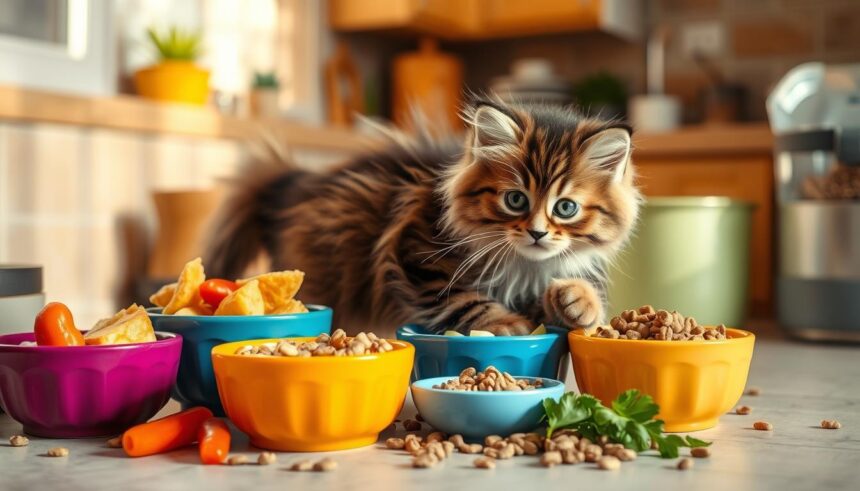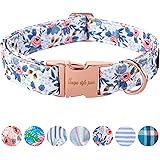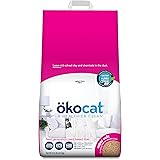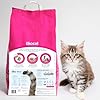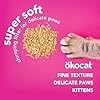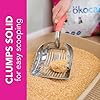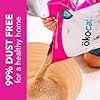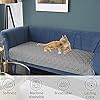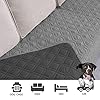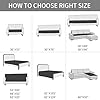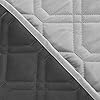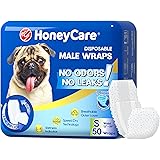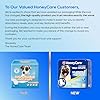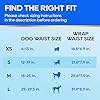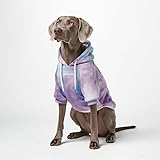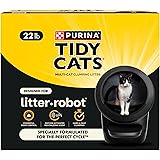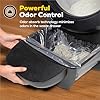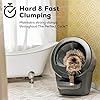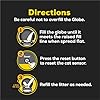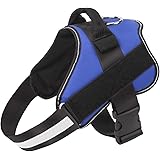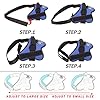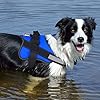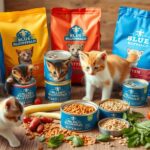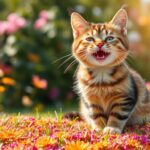Maine Coon kittens need a diet full of animal-based nutrients to grow well. They should eat more protein, some fat, and very little carbs. As meat-eaters, they need a diet that supports their health and prevents future problems. For example, a maine coon kitten food with the right nutrients is key for their growth.
Key Takeaways
- Maine Coon kittens are obligate carnivores, requiring a diet rich in animal-based nutrients.
- A balanced diet with the right balance of protein, fat, and carbohydrates is crucial for their growth and development.
- Feeding a properly balanced raw diet can lead to a longer life expectancy and lower disease risk for Maine Coon kittens.
- Kittens should be fed multiple meals a day, usually every 6-8 hours, to support their growth.
- Free feeding can lead to overeating, weight gain, and dehydration, making meal feeding a recommended approach.
- Choosing the best food for maine coon kittens, such as a recommended diet for maine coon kittens, is vital for their overall health and well-being.
- Consulting with a veterinarian can help determine the best food for your Maine Coon kitten, ensuring they receive the necessary nutrients for optimal growth and development.
Understanding Maine Coon Kittens’ Nutritional Needs
Maine Coon kittens need a diet full of important nutrients for their growth. They require high-quality food that has the right mix of protein, fat, and carbs.
Choosing a food labeled as “complete and balanced” is key. This ensures it meets their nutritional needs. Foods with a variety of proteins like chicken, turkey, and fish help prevent allergies and keep them healthy.
Omega-3 fatty acids, taurine, and vitamins are also crucial. They help keep their coat and skin healthy, support their heart, and boost their overall well-being. A good food for Maine Coon kittens should have these nutrients in the right amounts.
Essential Nutrients for Growth
Maine Coon kittens need at least 30% protein to keep their muscles strong. They also need a balanced mix of fat and carbs for energy and health.
Importance of Protein in Kitten Food
Protein is vital for Maine Coon kittens. It helps them grow and stay healthy, preventing problems like allergies and digestive issues. A variety of proteins ensures they get all the amino acids they need to thrive.
Choosing the Right Food for Your Maine Coon
Choosing the best food for your Maine Coon kitten is key. They need a diet rich in protein for growth. Top brands for Maine Coon kitten food often use high-quality animal proteins like chicken or salmon.
A balanced diet is vital for your kitten’s health. Healthy choices for Maine Coon kittens include foods with omega-3 fatty acids for coat and skin health. Also, make sure the food has enough taurine for heart health.
Dry vs. Wet Food: Pros and Cons
Dry and wet food each have their benefits. Wet food helps with hydration, which Maine Coons need. Dry food, however, helps with dental health by reducing plaque and tartar.
Grain-Free Options: Are They Necessary?
Some owners choose grain-free diets. But, it’s important to talk to your vet to see if it’s right for your kitten. Grain-free foods may not be needed for all kittens. It’s key to ensure the food is balanced and rich in nutrients.
The right food for your Maine Coon kitten depends on their needs. Always consult with your vet. Choosing a high-quality food from a trusted brand helps your kitten grow and thrive, ensuring a happy and healthy life.
| Food Type | Pros | Cons |
|---|---|---|
| Dry Food | Supports dental health, convenient | May not provide adequate hydration |
| Wet Food | Provides hydration benefits, often more palatable | May be more expensive, requires more frequent feeding |
Top Ingredients to Look for in Kitten Food
When picking out food for your kitten, a maine coon kitten feeding guide is key. It should focus on high-quality proteins and fats. Cats need a lot of protein from chicken, turkey, and fish to grow strong.
A good maine coon kitten feeding guide will highlight the need for real poultry and fish. These are important for muscle growth. Also, Omega-3 and Omega-6 fatty acids are vital for a healthy coat and skin.
Quality Proteins: Chicken, Turkey, and Fish
Chicken, turkey, and fish are essential for a kitten’s growth. They offer the amino acids needed for strong muscles and good health.
Healthy Fats for Optimal Development
Healthy fats, like essential fatty acids, are crucial for a kitten’s development. They help with skin and coat health and give energy for play and growth.
Following a maine coon kitten feeding guide with these ingredients ensures your kitten gets the right nutrients. Choose a specialized diet for maine coon kittens that fits their specific needs.
Evaluating Kitten Food Brands
Choosing the right food for your Maine Coon kitten is crucial. Look for brands with high-quality protein sources like chicken or salmon. They should also have omega-3 fatty acids for healthy skin and coat.
When picking a brand, check their ingredient list and how they make their food. A good kitten food should have at least 50% protein and less than 20% fat.
- Check the ingredient list for high-quality protein sources
- Look for whole grains and vegetables as carbohydrate sources
- Avoid fillers and by-products
- Check the nutritional content to ensure it meets your kitten’s needs
By choosing a high-quality kitten food, you help your Maine Coon kitten grow well. Always talk to your vet before changing your kitten’s diet.
| Brand | Protein Content | Fat Content | Carbohydrate Quality |
|---|---|---|---|
| Royal Canin | 50% | 15% | Whole grains and vegetables |
| Wellness | 55% | 18% | Whole grains and vegetables |
The Role of Supplements in Kitten Diet
Supplements are key in making sure healthy choices for maine coon kittens get all they need. A good maine coon kitten food is the main source of nutrition. But, supplements can fill in any missing nutrients.
Common Supplements for Maine Coons
Omega-3 fatty acids, probiotics, and joint health supplements like glucosamine and chondroitin are common. They help with skin, digestive, and joint health.
When to Consult Your Veterinarian
Always talk to a vet before adding supplements to your kitten’s diet. They can suggest the safest and most effective ones. Consider your kitten’s age, health, diet, and activity level when choosing supplements.
Working with a vet and giving a balanced diet with healthy choices for maine coon kittens is crucial. This ensures your kitten stays healthy and thrives on their maine coon kitten food.
| Supplement | Benefits |
|---|---|
| Omega-3 fatty acids | Supports skin health and joint health |
| Probiotics | Supports digestive health |
| Glucosamine and chondroitin | Supports joint health |
Feeding Schedule for Maine Coon Kittens
As a Maine Coon owner, it’s key to have a maine coon kitten feeding guide. This ensures your kitten gets the right nutrients for growth. Kittens need 30% of their energy from protein, so high-quality food is crucial.
Feeding the right amount of food is vital. Kittens should eat wet food at least twice a day. Dry food can be added if their teeth allow it. Very small kittens might need to eat four times a day if they only have canned food.
Kittens eating both dry and canned foods should have at least two canned feedings a day. High-quality canned food is better than dry food, especially for young kittens. A balanced diet with the right protein, fat, and carbs is essential.
How Often Should You Feed Your Kitten?
Maine Coon kittens should be fed 3 to 4 times a day. As they grow, you can adjust the feeding frequency. Adult Maine Coons need two to three meals a day, depending on their size and activity level.
Portion Control: Ensuring Healthy Growth
Controlling portions is key for healthy growth. A healthy Maine Coon needs 300-600 calories a day. An average adult Maine Coon meal is about 100 calories. It’s important to watch your kitten’s weight and adjust portions to avoid overfeeding or underfeeding.
Transitioning to Kitten Food
Switching your Maine Coon kitten to solid food is a big step. It’s crucial to pick the best food for them. Look for high-quality protein like chicken or salmon, and whole grains like brown rice or oats.
How to Switch from Mother’s Milk to Solid Food
To move your kitten from milk to solid food, start by mixing a bit of solid food with their milk or a milk replacer. Slowly add more solid food over 7-10 days.
Gradual Transition: Tips and Tricks
Here are some tips for a smooth transition:
- Start with a small amount of solid food and gradually increase the proportion over 7-10 days.
- Choose a high-quality, nutrient-rich food that meets your kitten’s needs.
- Consult with your veterinarian for personalized advice on transitioning your kitten to solid food.
Every kitten is unique, so be patient. Adjust the transition as needed. With the right food, your Maine Coon kitten will do great.
Homemade vs. Commercial Kitten Food
Choosing between homemade and commercial kitten food for your Maine Coon kitten is important. Both options have their good points and things to watch out for. A balanced diet is key for your kitten’s growth and health.
Maine Coon kittens need a diet full of protein and fat but low in carbs. Homemade food can be customized to fit these needs. But, it must be balanced to avoid nutritional gaps.
Benefits of Homemade Diets
Homemade diets let you pick the ingredients and adjust them for your kitten. They can also save money. But, it’s vital to get a vet or nutritionist’s advice to make sure it’s right.
Risks of Homemade Cat Food
Homemade cat food might lack nutrients or cause foodborne illnesses. It’s important to prepare and store it safely. Commercial kitten food, on the other hand, is made to meet kittens’ needs and is checked for safety and quality.
Whether to go for homemade or commercial food depends on your situation and what you prefer. Choosing a balanced diet for your Maine Coon kitten helps them grow strong and healthy.
| Nutrient | Recommended Daily Intake |
|---|---|
| Protein | 50% of daily calories |
| Fat | 20% of daily calories |
| Carbohydrates | Less than 3% of daily calories |
Food Allergies and Sensitivities
Creating a maine coon kitten feeding guide means looking at food allergies and sensitivities. Maine Coon kittens can react badly to some food ingredients. A specialized diet for maine coon kittens might be needed to fix these problems.
Common allergens for Maine Coon kittens include:
- Beef
- Wheat
- Corn
- Dairy products
These ingredients can cause symptoms from mild to severe. It’s important to work with a vet to find the problem and fix it.
Some cat owners try a hypoallergenic diet or a novelty protein diet for their kitten’s allergies. These diets use unique proteins like venison or salmon. They might be better for sensitive kittens. But, always talk to a vet before changing your kitten’s diet.
Training Your Maine Coon to Eat Properly
Teaching a Maine Coon kitten to eat right is key for their health and growth. The best food for maine coon kittens must be high in animal protein. It should list ingredients by volume. A recommended diet for maine coon kittens should have at least 90% animal ingredients to fulfill their needs.
To promote good eating habits, a positive eating space is vital. This means a quiet, comfy spot for meals, a regular feeding time, and top-notch food. Here are some tips for training your Maine Coon kitten:
- Begin training between 2-4 months, when they’re most open to learning
- Stick to a consistent feeding schedule and spot
- Give them high-quality food that’s right for their diet
- Don’t overfeed, as Maine Coons can easily get too fat
By following these tips and giving them the best food for maine coon kittens, you can help your kitten develop healthy eating habits. Always talk to your vet for specific advice on feeding your Maine Coon kitten.
The Importance of Hydration
Providing healthy choices for maine coon kittens is key for their health and growth. It’s vital to keep them hydrated. Maine Coon kittens need lots of water to grow fast, and their water intake must be watched closely.
Choosing the right maine coon kitten food is crucial. Wet food is better because it has more water than dry food.
- Watch their water intake, aiming for 30-40 ml per kilogram of body weight per day.
- Pick a high-quality maine coon kitten food that’s nutritious and hydrating.
- Try a mix of wet and dry food to meet their needs and preferences.
| Age | Weight | Recommended Water Intake |
|---|---|---|
| Kitten (0-6 months) | 1-2 kg | 30-60 ml per day |
| Adult | 5 kg | 150-200 ml per day |
By following these tips and making healthy choices for maine coon kittens, you can help your kitten stay hydrated and healthy.
Storing Kitten Food Properly
Storing kitten food right is key to keeping it fresh and safe. A maine coon kitten feeding guide can help with this. It tells you how to store food to avoid spoilage and keep it clean.
To keep food fresh, store it in a cool, dry spot. Keep it away from sunlight and moisture. The best place is an airtight container, safe from pests and rodents. Here are some tips for storing kitten food:
- Keep food in its original packaging or transfer it to an airtight container.
- Store food in a cool, dry place, such as a pantry or cupboard.
- Avoid storing food near toxic substances or cleaning supplies.
By following these tips, you can keep your kitten’s food fresh and safe. This ensures they get the nutrients they need to grow strong. Always check the expiration date and follow the storage instructions for high-quality food for maine coon kittens.
| Food Type | Storage Conditions |
|---|---|
| Dry Food | Cool, dry place |
| Wet Food | Refrigerate after opening |
Special Dietary Needs for Maine Coons
Maine Coon kittens need a specialized diet that fits their unique needs. A maine coon kitten food should have at least 30-40% protein. This helps with their fast growth and muscle building.
When choosing a specialized diet for maine coon kittens, consider these points:
- High-quality protein sources, such as chicken or fish
- Healthy fats, such as omega-3 fatty acids, for optimal development
- Calcium and phosphorus ratios of 1:1 to 2:1 for proper bone growth and development
Maine Coons have a slower metabolism, which can lead to weight gain. A maine coon kitten food rich in protein and low in carbs helps manage weight.
For more details on maine coon kitten food and specialized diet for maine coon kittens, check out catsjoys.com. They have lots of info on what your Maine Coon kitten needs.
| Nutrient | Recommended Amount |
|---|---|
| Protein | 30-40% |
| Healthy Fats | 15-25% |
| Calcium | 1-2% of total diet |
Frequently Asked Questions (FAQs)
Many owners wonder about the best food for Maine Coon kittens. A good diet is key for their growth and health. It’s important to feed them well.
Some common questions include what food to give, how often, and the need for water. Maine Coon kittens need a protein-rich diet. Wet food is great because it’s full of meat and keeps them hydrated.
For more details, check out raw kitten food websites. They have lots of info on nutrition. Also, talking to a vet can help make sure your kitten eats the best.
Here are some important tips for feeding your Maine Coon kitten:
- Feed a high-quality, protein-rich food
- Provide fresh water at all times
- Avoid overfeeding, as this can lead to obesity and other health problems
- Consider adding probiotics, such as Fortiflora, to support digestive health
By following these tips, you can help your Maine Coon kitten grow and stay healthy. Always talk to a vet if you have any diet or health concerns.
| Food Type | Frequency | Benefits |
|---|---|---|
| Wet Food | 3 times a day (kittens), 2 times a day (adults) | High in meat content, helps with hydration |
| Dry Food | 2-3 times a day | Convenient, can help with dental health |
Resources for Maine Coon Owners
As you care for your Maine Coon kitten, many resources are here to help. You can find books, websites, and online groups. These tools offer great advice and support for your cat’s life.
Recommended Reading and Websites
For the best Maine Coon care tips, check out the Maine Coon Guide and the Maine Coon Cat Organization. These sites have lots of articles and expert advice. They help you make smart choices for your kitten’s maine coon kitten feeding guide and health.
Online Forums and Support Groups
There are also online communities for Maine Coon owners. Places like the Maine Coons subreddit and the Maine Coon Cats Facebook group are great. They let you connect with others, share stories, and get advice on healthy choices for maine coon kittens.


